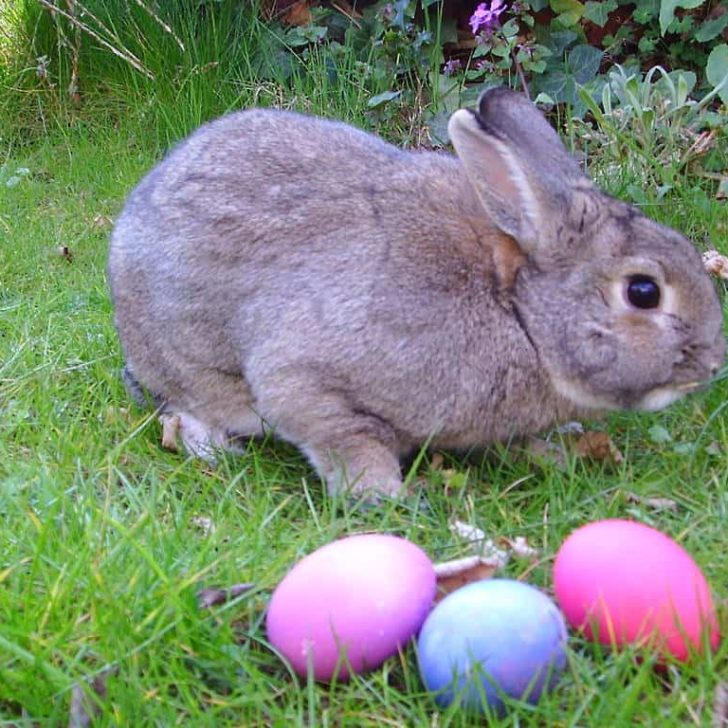Contrary to popular belief, rabbits do not lay eggs. This article will delve into the fascinating world of rabbit reproduction, exploring their unique biology and reproductive strategies. We will uncover the reasons behind their viviparous nature, examining their reproductive organs, mating behavior, and the development of their young.
By comparing rabbits to egg-laying animals, we will gain a deeper understanding of the diverse reproductive adaptations found in the animal kingdom.
Rabbits belong to the mammalian order Lagomorpha, which includes hares and pikas. As mammals, rabbits give birth to live young rather than laying eggs. This viviparous reproductive strategy is a defining characteristic of mammals, allowing for the nourishment and protection of developing offspring within the mother’s body.
Rabbit Birthing
Rabbit parturition, or giving birth, is a natural process that involves a series of hormonal triggers and physical changes. The process is initiated by a surge in the hormone oxytocin, which stimulates uterine contractions and dilates the cervix.
During parturition, the doe (female rabbit) will typically lie on her side or in a squatting position. The kits (newborn rabbits) are born in a rapid succession, usually within a few hours. Each kit is enclosed in a thin membrane that the doe breaks with her teeth.
The kits are born with their eyes closed and are unable to regulate their own body temperature.
Nest Box
The nest box is an essential part of rabbit birthing. It provides a safe and warm environment for the kits to rest and nurse. The nest box should be made of a material that is soft and absorbent, such as straw or hay.
The doe will typically line the nest box with her own fur to create a cozy and insulating environment for her kits.
Comparison with Egg-Laying Animals

Rabbits and egg-laying animals exhibit distinct reproductive strategies, primarily due to differences in their reproductive systems. This table compares the key anatomical and physiological aspects of their reproductive systems:
| Feature | Rabbits | Egg-Laying Animals |
|---|---|---|
| Reproductive Organs | Ovaries, uterus, vagina | Ovaries, oviduct, cloaca |
| Ovulation | Spontaneous | Stimulated by mating |
| Fertilization | Internal, within the oviduct | Internal, within the oviduct |
| Gestation Period | 28-31 days | Varies depending on species |
| Birth | Live birth | Egg laying |
| Parental Care | Extended period of nursing | Varies depending on species |
These differences reflect evolutionary adaptations to their respective environments. Rabbits, as mammals, have evolved to protect their developing offspring within the mother’s body, providing nourishment and protection during the gestation period. Egg-laying animals, such as birds and reptiles, have adapted to external fertilization and egg laying to suit their habitats and survival strategies.
Examples of Egg-Laying Animals and their Unique Reproductive Characteristics
- Birds: Lay hard-shelled eggs with internal fertilization. Incubation by the parents provides warmth and protection for developing embryos.
- Reptiles: Lay soft-shelled or leathery eggs with internal or external fertilization. Some species exhibit temperature-dependent sex determination, where the temperature during incubation influences the sex of the offspring.
- Amphibians: Lay eggs in water or moist environments. Fertilization is external, and the eggs develop into larvae before transforming into adults.
Last Point
In conclusion, rabbits do not lay eggs due to their distinct reproductive biology. Their viviparous nature, characterized by internal fertilization, gestation, and live birth, sets them apart from egg-laying animals. This reproductive strategy has evolved over millions of years, providing rabbits with a competitive advantage in their environment.
By nurturing their young within the mother’s body, rabbits ensure the survival and development of their offspring in a world filled with challenges.
FAQ Section
Do rabbits have ovaries?
No, rabbits do not have ovaries. They have a pair of testes, which are responsible for producing sperm.
How long is the gestation period of a rabbit?
The gestation period of a rabbit is approximately 30 days.
How many babies can a rabbit have in one litter?
A rabbit can have anywhere from 1 to 12 babies in one litter, with an average litter size of 6 to 8.
Are rabbits good parents?
Yes, rabbits are generally good parents. They build nests for their babies and nurse them until they are weaned.